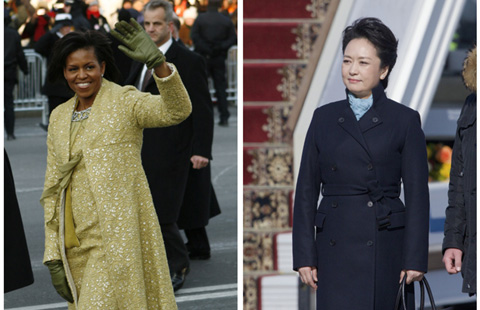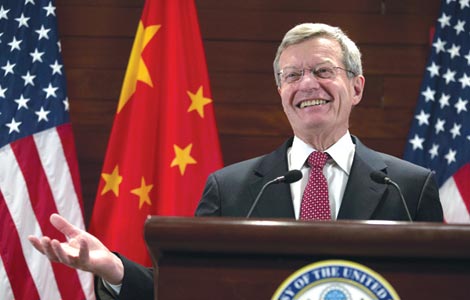British Columbia: Issuing 'dim sum' bond tightens China ties
Updated: 2014-03-21 05:48
By MICHAEL BARRIS in New York (China Daily USA)
|
||||||||
It was a risky move by a government seeking to impress China. It paid off in securing the nation's friendship, a key move in attracting Chinese investment.
Last November, the government of the Canadian province of British Columbia became the first foreign government to issue an offshore bond denominated in yuan. The issuance of the one-year bond — nicknamed the "dim sum" bond for the Chinese cuisine that involves serving a variety of small delicacies – raised an unexpectedly high 2.5 billion yuan ($405.1 million).
The high-profile step marked a milestone for China in the internationalization of its currency, a key issue in its financial reform plan.
"I'm sure the Chinese government always will remember it," Teresa Wat, BC's International Trade minister and minister responsible for Asia-Pacific strategy and multiculturalism, told China Daily in an interview. She was in New York as part of an Eastern US swing aimed at attracting investment to Canada's westernmost and most ethnically diverse province, the closest in proximity to China.
BC Finance Minister Mike de Jong said officials had intended to raise only 500 million yuan with the bond offering but demand exceeded expectations. Central banks and foreign institutions snatched up 62 percent of the bonds while fund asset managers bought 18 percent. Investors in Hong Kong took 46 percent, and US investors grabbed 40 percent. The bonds carried a yield of 2.25 percent — 10 to 15 basis points lower than bonds sold by the Chinese government, according to offering manager HSBC.
Dim sum bonds appeal to foreign investors who seek exposure to yuan-denominated assets, but are restricted by China's capital controls from investing in domestic Chinese debt. Until BC issued its bond, the issuers of dim sum bonds had been largely entities based in China or Hong Kong, and occasionally foreign companies.
Helping China "leaves a good impression", Wat said during the interview at a Manhattan hotel. By being "bold and risky and creative enough to break it open", the province can attract more Chinese investment to Canada, and particularly British Columbia and the Vancouver area, she said.
China "has been very active in their financial world for many years, and yet how come not even one government had thought about issuing a bond in RMB (yuan)?" Wat asked. "Do they have confidence in the RMB? That tells a lot. We at the BC government really have confidence in the RMB, we know one day it will thrive – and sure enough it did take off successfully." The province plans to hold another dim sum bond offering "when opportunity arises", Wat said.
Jim Hopkins, assistant deputy minister of British Columbia's Finance ministry, said the province wanted to be an early entrant in the offshore yuan market, which is expected to grow rapidly and benefit participants in terms of lower trading cost with China and more diversified financing and investment channels.
Most Viewed
Editor's Picks

|

|

|

|

|

|
Today's Top News
Michelle Obama starts landmark trip
Australia resumes search for MH370
Russia starts sanction against US
Despair voiced in hunt for plane
Experts warn as yuan dips further
China talent top worry for US firms
Search for plane yields frustration, heartache
Quality is king in mobile games' race to the top
US Weekly

|

|















